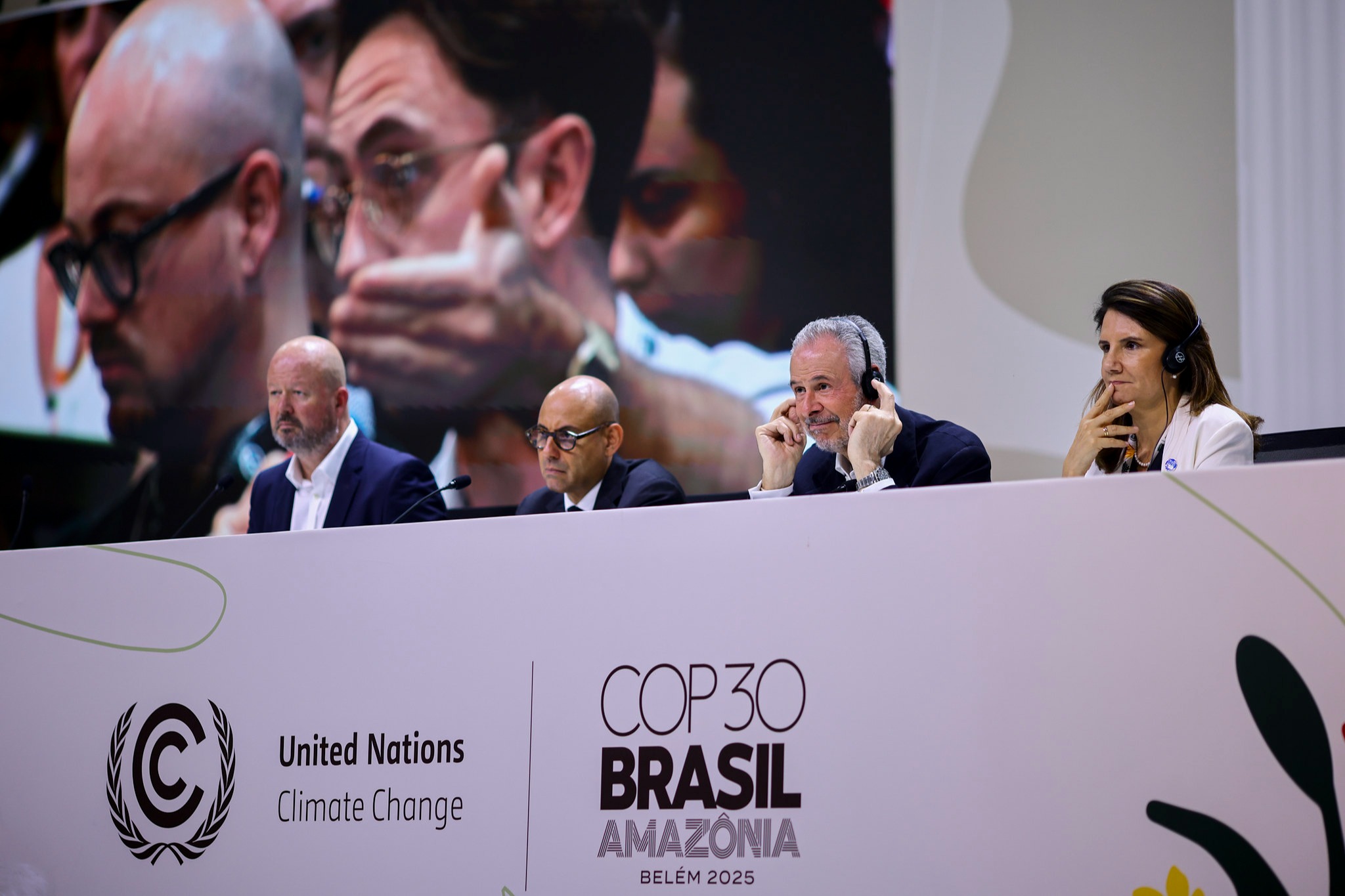COP30 is wrapping up on 21 November. You have probably heard it mentioned in the news over the past two weeks, but you might still be unsure what it actually is. What are its aims and goals? And why does it matter to you, to young people and to Scouting? This short explainer sets out the basics in clear and simple terms.
So, what is COP?
COP stands for “Conference of the Parties”. It is the decision‑making meeting for the international climate treaty created at the Rio Earth Summit in 1992. Every year, 198 countries meet to check progress and agree what should happen next to tackle climate change.
Although most people associate COP with climate change, the term is also used for other United Nations environmental agreements, including those on biodiversity (the variety of living things in an area) and desertification (when land becomes drier and less able to support life). COP30 refers specifically to the thirtieth climate COP under the United Nations Framework Convention on Climate Change.
At COP, countries come together to discuss how to reduce emissions, protect nature, support vulnerable communities and prepare for more extreme weather. At the end of each summit, they agree a set of decisions that guide future global climate action.
This year’s meeting is taking place in Belém, Brazil, in the Amazon rainforest, highlighting the importance of forests in stabilising the climate.
Why COP30 is an important moment
COP30 comes at a key point in time. It is 33 years since countries first agreed to work together on climate change, and 10 years since the Paris Agreement, where almost every country committed to limit global warming to well below 2°C and aim for 1.5°C.
Over the years, COPs have led to major global agreements such as the Kyoto Protocol and the Paris Agreement. These have shaped national climate laws, encouraged investment in renewable energy and helped reduce the level of global warming the world is currently heading toward. While more action is needed, these achievements show that cooperation between countries can make a meaningful difference.
Scientists warn that climate impacts become much more severe as temperatures rise from 1.5°C to 2°C. In recent years, global temperatures have already briefly risen above the 1.5°C level, increasing the urgency of stronger action.
Before COP30, countries were expected to submit updated national climate plans, known as Nationally Determined Contributions, or NDCs. These plans set out how each country aims to cut emissions. Only about a third of countries submitted updated plans in time, making COP30 an important moment to rebuild ambition.
There has also been positive progress. Countries have already agreed to:
• triple renewable energy by 2030
• double global energy efficiency by 2030
• significantly cut methane emissions
Analysis shared at COP30 suggests that delivering these targets could reduce global warming later this century by almost one degree, bringing the world closer to the goals of the Paris Agreement.
Why this matters to young people
Climate change affects young people more than any previous generation. It influences weather patterns, the places we live, the nature around us and the wellbeing of communities. Extreme events such as storms, floods and heatwaves are becoming more common.
Scouts spend a lot of time outdoors and see first‑hand how important it is to look after nature. Scouting helps young people learn practical skills, develop teamwork and take action in their communities. These ideas link closely with the United Nations Sustainable Development Goals, a list of global goals designed to help people work for a better and fairer world.
Why COP matters to Scouting Ireland
Sustainability is central to Scouting’s mission to help create a better world. Through our Youth Programme, and through initiatives such as the Better World Framework and Earth Tribe, Scouts in Ireland are already taking practical, youth‑led action on climate and nature.
Global discussions like COP shape the world in which this work happens. They influence progress on renewable energy, forest protection, resilience and climate education.
What COP30 is focusing on
Although COP negotiations can be complex, several clear themes have emerged:
• updating national climate plans
• turning existing promises into action
• protecting forests and biodiversity
• supporting vulnerable regions and communities
• strengthening resilience to extreme weather
• improving the sustainability of agriculture
• continuing efforts to reduce emissions
What Scouts can do next
Global change begins with local action. Scout Groups can:
• reduce waste at meetings, camps and events
• run nature, climate or SDG‑themed activities
• take part in National Tree Week, Earth Hour or a community clean‑up
• start a biodiversity, conservation or energy‑saving project
• encourage youth‑led ideas and community participation
Most importantly, use your voice. Speaking up is one of the most powerful tools you have, especially when it is directed towards the right people. This does not only mean talking to leaders or decision‑makers. It also means speaking to friends, neighbours and classmates about making positive changes. When more people understand the issues and get involved, progress becomes much easier.
If your Group is already taking action, we would be delighted to share your stories in future newsletters and resources.
COP is a global moment, but the real impact happens locally. Scouts across Ireland are already showing what positive, hopeful climate action looks like.

